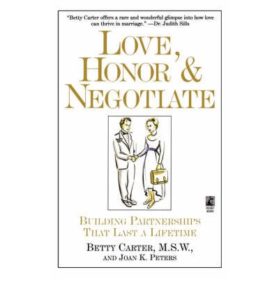Whatever the long-term relationship status might be, it is a good idea to have a pre-marital or cohabitation agreement. Why?
Many people are now waiting to marry until later in life. Some do not marry at all, but are in long-term co-habitation relationships. Psychologists and other social scientists say this is because of one or several possibilities:
- the expectations of society that marriage is a requirement have lessened;
- that more women are now educated and able to support themselves alone;
- that single-parenthood no longer has the stigma that it once carried; or,
- that people do not want to suffer through the kind of divorce that their parents had.
Whether you or someone you know is entering into a marriage or going to cohabit with another person, it is a good idea to have a pre-marital or cohabitation agreement. Why?
Lessening the Cost of a Divorce.
If there is a break-up at any point, the cost and drama of the break-up will be lessened if the couple planned ahead to either combine income and assets or keeping them separated by contract. If the couple already has agreed that they will keep their income and assets separate or determined what part will be separate or community, the divorce will cost much less. The decision will have been made and the actual decree of divorce will simply formalize that earlier agreement by order.

“Renegotiate” the terms of the agreement.
One idea that I just learned more about is the concept of building into your pre-marital or cohabitation contract that you will meet periodically to “renegotiate” the terms of that agreement. I recently read a book by Betty Carter, M.S.W.; she was very active in the changing landscape of relationships and wrote a book in 1996 called, “Love, Honor & Negotiate: Building Partnerships that Last a Lifetime.” While some of its sociological suggestions, such as joint custody being the accepted norm so that both parents have involvement in the children’s lives after a divorce, it does have, as stated in its title, a timeless pearl of wisdom, that all couples should consider, that relationships are more sustainable and long-lasting if the parties learn how to negotiate throughout their time together to satisfy both parties’ interests, needs and goals.
Why shouldn’t couples agree, by contract, what the terms of their relationship will be?
Most everyone who enters into a marriage (for love) just expects that everything will be happily ever after. And for a while, it usually is. But, as Betty Carter notes, that happily-ever-after lasts until the marriage stressors begin. The first one is usually children. In the midst of the happiest time in a couple’s life, the birth of their first child, the stressors start making or highlighting cracks in the relationship: Who will take the role of primary caregiver?
If the caregiver role is not equally shared, who one give up or slow down his or her career to become the primary caregiver? And when the child or children are older and one parent has had great success in his or her career while the other parent has “stayed home,” how will that stay-at-home parent be able to “catch up” from the loss to their career’s progress? Other stressors include financial philosophies, involvement of extended family members, the empty-nest stage and retirement.
Obviously, these issues cannot all be negotiated at the time the relationship begins. But, what if the couple agrees to go at least once a year (and more if necessary) to a joint meeting with a therapist and a financial planner? This could be something akin to a “well-baby check-up”. We all go to our annual physical exams and have our teeth cleaned once a year?
Are our relationships not worthy of a check-up and “tweaking,” too?
Sadly, by the time I see clients in my office, years of resentment have passed. Often it is too late for the relationship to be saved. If only they had the support of professionals who walking them through relationship minefields as they coming up. How many relationships could be saved? Or if, for example, the couple meets and realizes that their life’s goals have changed and no longer match. How much more civilized could the resolution be, if it is before years of bitterness have passed?
If you or someone you know is contemplating marriage or cohabitation, please share these thoughts with them. And if you know someone who is already married or in a relationship, share these thoughts with them. You might be saving their relationship. And if you know someone who is contemplating divorce, offer these thoughts to them; even if the relationship cannot be saved in its current form, you might be able to offer them an option that will enable them to end it with civility and peace.
Collaborative lawyers are uniquely trained and equipped to help couples navigate these questions prior to the commencement of their marriage or cohabitation and thereafter.
If you or someone you know could benefit from the collaborative process, a more civilized way to develop a Pre-Marital Agreement, Cohabitation Agreement or a handle a divorce, please have them contact me or any of the Denton Collaborative Attorneys or Collaborative Professionals across the state of Texas.












